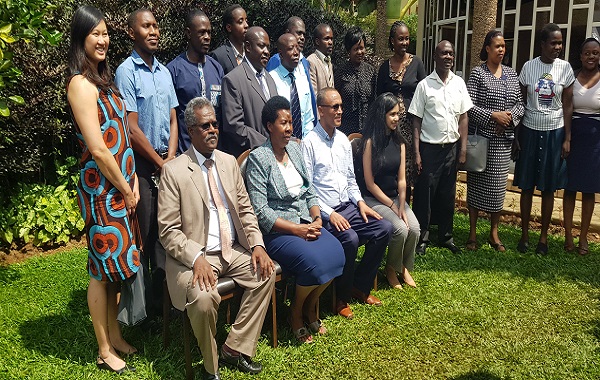In Uganda, the Programme is supporting the country’s NAP-Ag process by helping the country to reduce the vulnerability of the agriculture sector to the impacts of climate change and to build adaptive capacity and resilience. It is worth noting that the Uganda’s NAP-Ag is part of the overall Uganda National Adaptation Planning process. The NAP-Ag road map was launched in 2015 and its implementation supported under the Global Climate Change Alliance (GCCA)/FAO project in Uganda. Preparation of the NAP-Ag framework and its Performance Monitoring and Evaluation Plan have been finalized under the NAP-Ag Uganda project. The NAP-Ag framework is aligned to Uganda's development context and planning processes, guided by the Uganda Vision 2040, the National Development Plan (NDP II) and the Agricultural Sector Strategic Plan-2015/16-2019/20.
Agriculture is one of the four priority development areas in the current NDP II. The sector is considered central to the country’s economic growth, poverty reduction, and industrialization. However, climate change remains a constraint to the achievement of the envisioned long-term sustainable development.
As a response, Uganda NAP-Ag goal is to increase the resilience of Uganda's agricultural sector to the impacts of climate change, through coordinated interventions that enhance sustainable agriculture, food and nutritional security, livelihood improvement and sustainable development.
Uganda’s NAP-Ag implementation was officially launched on 28th November 2018 by the Minister of Agriculture and was followed by several activities. It is in this vein that FAO and UNDP in partnership with the Ministry of Agriculture, Animal Industry and Fisheries, and the support from the Global Water Partnership (GWP), organized a national workshop in Entebbe on 18-19 June 2019 with the aim of sharing the lessons learnt from the NAP-Ag process to advance the overall NAP and other sectoral NAP processes.
The main objectives of the workshop were:
- To sensitize the various stakeholders and sectors on the process, tools and approaches of the NAP-Ag in Uganda
- To evaluate the relevance of the tools and approaches used in the NAP-Ag process for use by the overall NAP and other sectoral NAP processes
- To draw recommendations on how the lessons learnt from the NAP-Ag process could be used to support the overall NAP and other sectoral NAP processes
- To facilitate experience and knowledge sharing on climate change adaptation among stakeholders
GWPEA team (Regional Coordinator and Regional Program Manager) participated and contributed to the discussions. The workshop presentations and discussions enabled GWPEA to better understand the NAP-Ag framework, participate on drawing recommendations and will use lessons learnt to help other CWPs develop their NAPs. It is worth noting that, the three-days-workshop was facilitated by Mr. Kidane Jembere, Technical Advisor, GWP Southern Africa, Coordination Unit.
